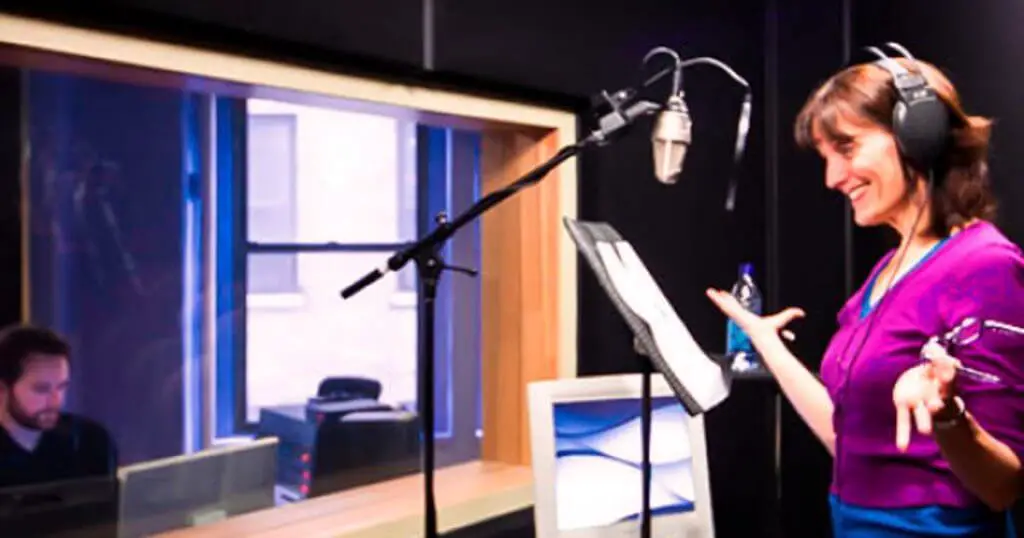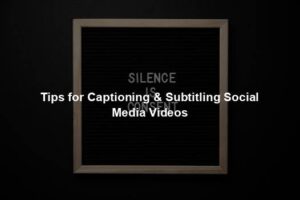
In this article, I will answer all the questions that you might have regarding voice actor casting. So what is voice actor casting? This is the process in which production houses choose the best voice actors for their projects. As much as we look at it as a process in the film industry, they like to term it as an art or a science. This is because the process involves a lot of factors in coming up with the best voice actors for a particular project. Not only do they have to understand who their audience is and what voices will resonate with them, but they also have to find the perfect voice and guide it through the acting also termed as the performance.
As much as it sounds like the easiest process in film production, it really is not. There are different aspects of a voice actor needed before they get a part in any film. Their quality of their voice, their tonal variation range, their accents, their capacity to work with their voices to bring out a particular emotion and so and so forth. Regardless of how long one has been in this business and how good they are at casting voice actors, it still gets hard from time to time, to cast the best voice actor for a particular project.
Below, we will get into the different frequently asked questions regarding this process. By the end of this article, you will know all the nitty-gritty about the voice actor casting.
Voice Actor Casting Frequently Asked Questions
1. What is challenging about Casting Voice Actors?
Everybody knows that writing a script for voice over or voice acting purposes is one of the hardest things for scriptwriters to write. There are a lot of factors that come into play, that don’t normally come up when writing scripts for screen, or stage acting. Recording for a scripted voice over in normally not very organic. Getting a good read from a voice-over session is a very different discipline. Regardless of whether a project is super exciting, the recording process is usually the same and all the mechanisms are unglamorous. Therefore, a lot of directors always prefer to lean more towards the natural ability, skill, and intuition of the voice actor to get the best out of the casting.
2. What Makes a Good Read?
A good read happens when a voice actor reads out their lines out loud while in character. For it to be good, the actor needs to come through in the best way possible. They should be able to have a great command with their voice, whether it is while using a strong baritone or a squeaky soft voice. They must have a great command of their voice depending on the characteristics of the character that they are playing.
A good read is really all about the voice actor being able to control their voice in the best range and also include inflection, cadence, and pronunciation of the lines correctly. These are requirements for good performance. The talent needs to read into the script, not just be able to read the script. This doesn’t mean reading between the lines, per se. Rather, this is the necessity of apprehending what the script is trying to communicate. This goes for any kind of script.
3. How Important or Influential is the Script Writing in the Overall Voice Actor Performance?
A lot of professional voice actors can read through any script, regardless of whether it was for voice acting. This is because of their extensive experience in working as voice actors. It is good to note though that there are scripts that written specifically for voice acting and this is always highly dependent on the writer. Regardless of the format of the script–e.g., radio ad, explainer, documentary narration, training video–it is the responsibility of the writer to not just cobble together facts, words, and bullet points, but to command the language. A good script shouldn’t fight the reader but should have a discernible flow of thought and word.
Going back to the second question, a good read really relies on the quality of the writing more than the capability of the voice actor.
4. How Does Casting Impact the Result?
Assuming that you have a fantastic script, written specifically for voice acting, the next step is casting. This is where you get to choose the best voice actors for your script. It is very hard to get a good read if your script is not as good.
There’s an old rule of thumb for screen and stage directing that is a joke and a warning at the same time: 90% of the director’s job is casting. This is amped-up a notch with casting voice talent because of the “non-organic” nature of the recording. A director needs to cast the right voice talent–with ability, skill, and intuition–who is also the right fit for the role.
It is important to cast the best voice actors because failure to do this will end up affecting the overall quality of your film. Determine what your script calls for in its technicality, and its personality, and find the voice talent who can deliver on both, you’ll be well on your way to a good read.
5. What Is A ‘Bad Read?’
A bad read is the opposite of a good read, and since by now you understand what a good read is, I’m sure you can tell what a bad read is. As a casting director, if you do a bad casting you will end up with a bad read, and that is why it is very important to cast the best voice actors.
If a voice actor doesn’t have the technical chops and command to read a script without errors, or one who lacks natural voice qualities, then you will definitely end up with a bad read.
Most listeners will know a bad read when they hear one. Whether it’s just one line or the whole script, a bad read sounds stilted, confused, deflated, and unprofessional–qualities that undermine the credibility of your project’s final output.
It is important to note though that a bad read results from a poorly written script, confused or exhausted voice talent or poor direction from the film director.
6. How Do You Avoid A ‘Bad Read’?.
It is very important to make sure you avoid a bad read by all means possible. The way to avoid a bad read is to, first, make sure you have a great script for voice acting that avoids redundancy. If you have a script that constantly has repetitive words or statements, then you will end up with a bad read.
Get a voice actor who is keen and knows exactly what they are doing. This will ensure that you are working with someone aware of how to play with their voice range to bring the best out of a particular character.
The casting director must also make sure they do their part, which is to ensure that they direct the voice actors in the best way possible. I firmly believe every voice talent wants to do their best and be a part of something they’re proud of. So it’s important for the director to go in knowing what he or she needs for the project.
7. How Can the Director Put the Project on Track?
It is very important for the director to know what the script, he or she, is directing entails. Since the director is the one in charge of directing the script to the voice actors and ensuring that they bring all the scenes out in the best way, they really need to understand the script well.
Directors have the capability of breaking or making a project. If they don’t direct a film properly, then chances are they will end up having a bad read which will affect the whole film project. While directing, there are factors that come to play to ensure that the director does his job well. Some directors love using this tool to correct bad reads or to make sure they don’t happen. We refer to this tool as “line reading“. This is when a director reads a line of a script to the voice talent, with exact pronunciation, inflection, and cadence, then the voice actor voices it the same way.
These are a few questions frequently asked about voice actor casting. I will mention more on another article that you should be on the lookout for.







